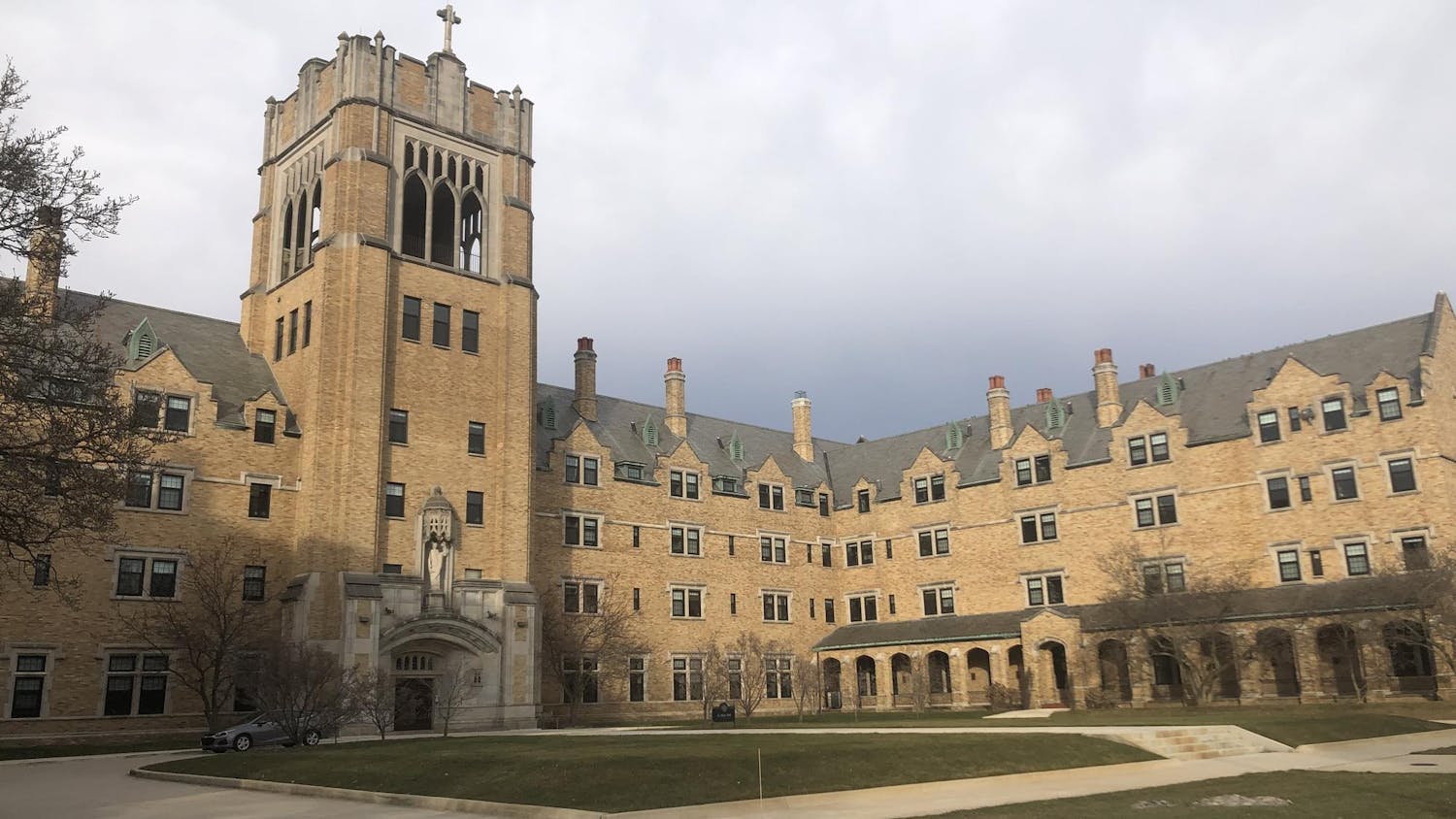As autumn ends and the words "lake effect" become a more regular, and biting, descriptor in our daily weather report; as we have to sleep in later and later to wake up in sunlight (a challenge many in Dillon seem up for!); and the days of frisbees and bare feet on the quads fade from memory — the Church offers us November as the Month of the Dead. Well, we can't fault them for bad timing; November is, indeed, a time for losing. (Don't tell this to the football team … )

"I will not lose anything of what my Father has given me."
Jesus, fully human, is nonetheless keen to push the limits of what it means to be human. He seems often to make claims that most of us normal humans would have a difficult time uttering. Claims like, "I am the resurrection and the life." Most humans I know would pause before claiming that one. Or, "I am the Bread of Life. And if you eat of my flesh and drink of my blood, you will have eternal life within you." That's one that most humans probably wouldn't want to say even if they could.
Though perhaps not as spectacular, this claim about "not losing anything" pushes the limit of what we know to be true of our human experience.

That is to say, think about how hard it is for us not to lose something. We can start, simply, with inanimate objects — car keys, your ID, a flash drive. And we can move quickly to more existential targets — our temper, our integrity, our way. It turns out, we lose things all the time.
How many of our greatest human stories would simply disappear if we removed from human experience the possibility of losing something or being lost? Farewell to Odysseus, Dante and Ahab, before we even start thinking deeply. As all three of these protagonists would attest, it is a maddening thing to lose or to be lost. It is, too, a most helpless feeling. If your car keys are really lost, and not simply misplaced, you cannot just will them back into your hand. Rather, you just have to stand there and pull your hair, and look again and, eventually, call the car dealer. Dante cannot will himself out of the dark woods, nor Ahab simply will the appearance of the elusive white whale. Indeed, it is frustrating, maddening, helpless to lose or to be lost.
During the month of November in the Church, we are invited to push this experience to the limit, where the stakes are infinitely higher. What do we do when what we have lost is someone we love?
In the face of all of this, Jesus says, "I will not lose anything of what my Father has given to me." Is Jesus exempt from this most human reality?
It would seem not. For when his disciples ask him to teach them about the Kingdom of God, Jesus responds, in parables, about a lost coin, and a lost sheep, and a treasure lost in a field. In these stories, Jesus seems as maddened with loss as we are, for in each of these parables, the lost object is restlessly sought and found.
Think of the restlessness Jesus conveys in the parable of the lost sheep. A shepherd has a hundred sheep and one is lost and the shepherd goes off to find it. Certainly, it is a near-heretical move to juxtapose Jesus and Ahab. Yet the one lost sheep (and chances are it was white!) does seem to provoke the shepherd — really beyond all reason — to leave 99 worthwhile sheep, and search the desert relentlessly for the one. In a scene right out of exuberant Homer, the woman who loses a coin, upon finding it, throws a party that is worth more than the coin she lost. Jesus, like us, is agitated in loss and exultant in discovery.
Perhaps this is nowhere more the case than in the scene where Jesus faces loss of the highest sort — John 11, where Jesus learns of the death of his friend, Lazarus.
What does this Gospel have to tell us about losing someone we love? We can begin with what it conspicuously does not tell us. It does not tell us why we lose people we love. It does not shed light on why the human experience includes, indeed is sometimes dominated by, such painful and definitive separation. It does not tell us how to make the sting of loss disappear.
In fact, in this Gospel, when Jesus finally reaches Lazarus' tomb, and the reality of the loss becomes physically present before his eyes, we read three powerful words: "And Jesus wept." No further details are given; no explanation is offered. Death is death; Lazarus is dead; and Jesus weeps. It would be to short-change Jesus' humanity to insist that he had an easier time with the death of someone he loved than we do.
Yet still, after he weeps, Jesus asks Lazarus' sisters — Martha and Mary — perhaps the only question left to ask in the face of death. He asks them, in the midst of his tears, "Do you believe Lazarus will rise again?" He asks us, here in mid-November, "Do you believe the people you love will rise again?"
Perhaps one way to understand the Church's Month of the Dead is as an invitation from Jesus — even while he weeps and feels the severity of the separation: "Do you believe your loved ones will rise again? Do you believe that this loss is not permanent? Do you believe that death does not get the final word? Do you believe in the resurrection?"
Because Jesus weeps, we can trust that he understands that these questions are not always entirely uncomplicated for us to answer. And so, in order to encourage — indeed, embolden — us, Jesus offers us this audacious reminder: "I will not lose anything of what my Father has given me."
"I am the Resurrection and the Life," says our God-made-human. "And all are raised in me."
This week's column is written by Fr. Lou DelFra, CSC, of Campus Ministry and ACE. He can be reached at delfra.2@nd.edu
The views expressed in this column are those of the author and not necessarily those of The Observer.












